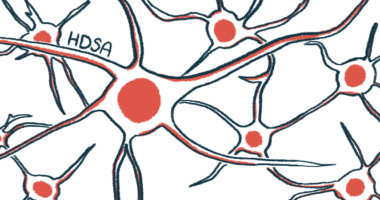Adequate Care Lacking for Many With Huntington’s in India, Study Finds

Among people with Huntington’s disease living in India, psychiatric problems are common but routine clinical follow-up is lacking, a study suggests, emphasizing the need for better symptomatic care.
The study, “Psychiatric morbidity and poor follow-up underlie suboptimal functional and survival outcomes in Huntington’s disease,” was published in BMC Neurology.
Most published scientific literature for Huntington’s disease (HD) focuses on American and European populations, but the condition is increasingly being reported and studied elsewhere.
With the wider availability of genetic testing, there has been a recent increase in the number of Huntington’s cases in India. An estimated 40,000 to 70,000 people in the country are now thought to have this disease.
Researchers at the National Institute of Mental Health and Neuro Sciences, in Bangalore, evaluated medical records in combination with over-the-phone interviews to address how Huntington’s manifested and was managed in India.
They identified 144 people who tested genetically positive for Huntington’s at their clinic between 2013 and 2016. Of these, 81 were able to be contacted and agreed to participate in the study interview, either themselves or by way of a caregiver.
The study included a roughly equal number of males and females, and most (47 people, 58%) were from Southern India. The average age when symptoms started was 40.3 years, and the average time spent living with symptoms was 7.8 years. The average number of CAG repeats in the HTT gene, the underlying genetic cause of Huntington’s, was 44.2.
These features “are comparable to the studies in Western populations,” the researchers wrote.
More than half (50, 61.7%) of the participants had motor symptoms at onset, while 25 (30.8%) had behavioral or cognitive symptoms first. The rest had a mixture of both motor and non-motor symptoms at disease onset.
The average Unified Huntington’s Disease Rating Scale (UHDRS) total functional capacity score was 7.5, which “suggests significant functional disability.”
Additionally, 74 (91.4%) experienced psychiatric problems, including anger outbursts (65%), low mood or depression (53%), generalized anxiety (48%), and delusions (40%).
“Timely recognition of these problems facilitates appropriate treatment, with potential positive consequences on emotional, cognitive, and physical well-being,” the researchers wrote.
About half of those interviewed, 46 people or 56.8%, were undergoing regular clinical follow-up. Others reported either being seen irregularly by healthcare providers or not at all. Regardless of follow-up status, most patients — 63 or 77.8% — were adherent to their medication, meaning they were using treatments regularly and as prescribed by a physician.
“Despite the physical and mental disability, majority of the patients were being looked after at home, without specialized nursing care,” the researchers noted. “The long commute to access health care, poverty, lack of faith in treatment, estrangement from family, and disability discouraged a fifth of the patients from maintaining follow-up.”
Of the original 144 people with Huntington’s identified, 17 had died but their caregivers participated in interviews. Their average age at death was 53, and the average time from symptom onset to death was seven years. The researchers noted that disease duration was “considerably lower” than that seen in studies from Europe, where average time between symptom onset and death has been estimated at 24 years.
“Multiple factors could have contributed to this including delayed diagnoses, disease severity and inadequate care,” the researchers wrote. “Though the cause of death was unclear in many, most of the known causes (suicide, intracranial bleeds due to falls, aspiration pneumonia) are preventable.”
This study suggests that, especially in less economically developed countries like India, many people with Huntington’s may not be receiving adequate treatment that can improve quality of life and survival.
“This small set of individuals, seen over 3 years, informs us of the complex needs of those with HD, and their families,” the researchers wrote. “Inadequate knowledge about HD amongst the health care professionals, lack of resources for HD families, and their unmet needs and the relation to low quality of life scores highlights the need to improve the quality of care, even in developed countries.”






